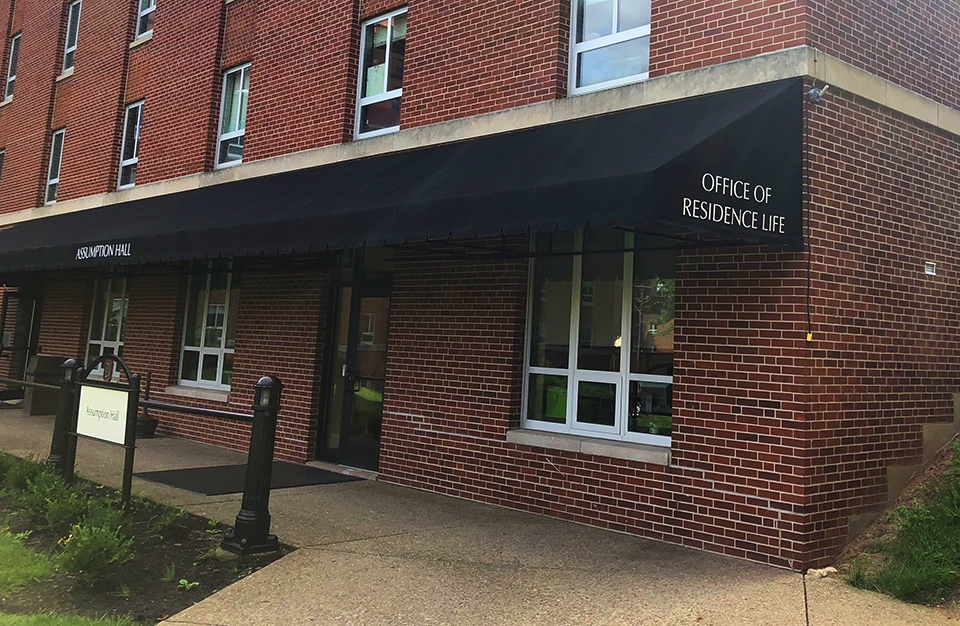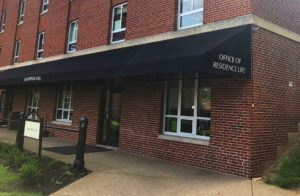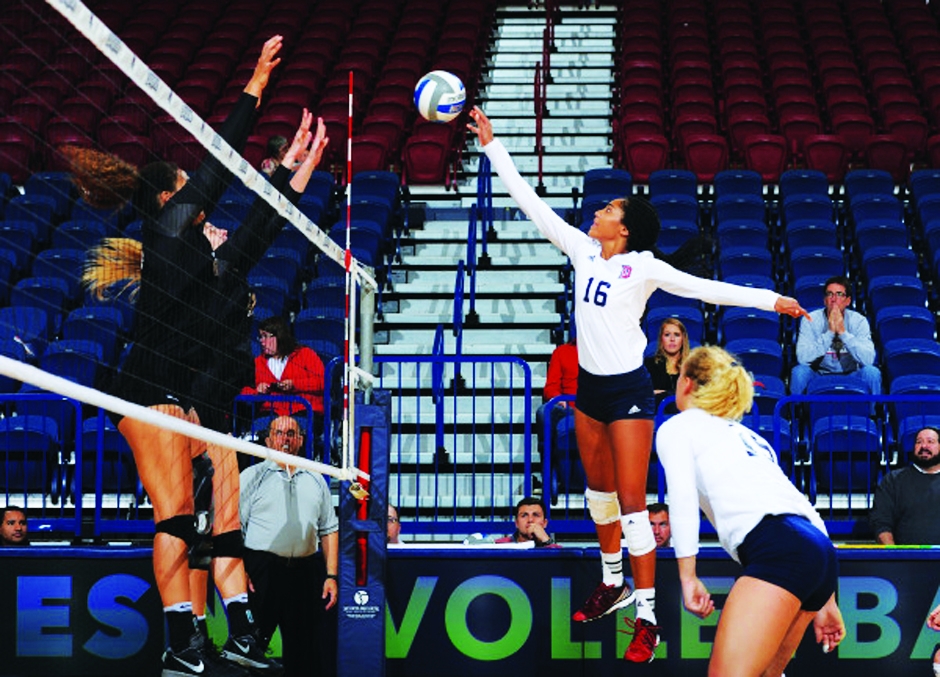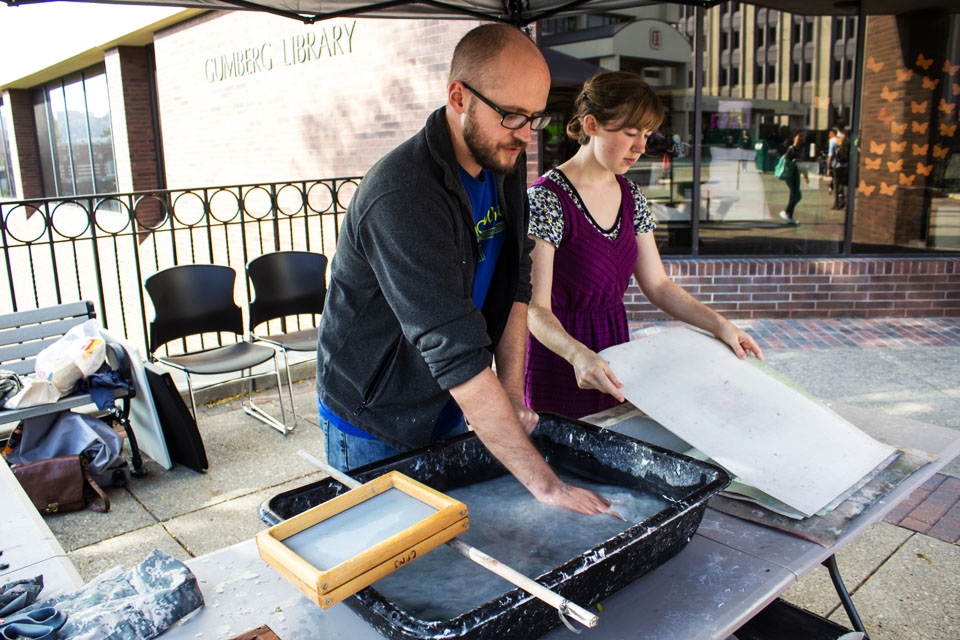
Duquesne University’s Office of Residence Life is located in Assumption Hall.

Duquesne University’s Office of Residence Life is located in Assumption Hall.
Gabriella DiPietro | News Editor & Hallie Lauer | Features Editor
10/04/2018
This is the first article in the Duke Deep Dives series. For more on the series, see the Staff Editorial on page 4.
Duquesne students are complaining about the cramped living situation on campus, since many of them reside in forced triples or quads.
To some it seems that students are paying more money for less living space. From 2017 to 2018, tuition has increased across the whole university by 3.6 percent.
During the 2017 academic year, the university, which had an occupancy rate of 102 percent, housed 3,784 students on campus — 56 students over capacity levels.
Although Duquesne University did not yet report this year’s occupancy rate, it seems to have risen significantly due to a number of upperclassmen not moving off campus.
This year, Duquesne welcomed one of its largest freshman classes, and more upperclassmen opted to live on campus. This has caused a housing epidemic, which forced many sophomores and juniors to live in dorms that they did not want and resulted in many incoming students being crammed into freshman dorms.
St. Martin Hall, a freshmen residence hall, even converted the lounges on each floor into two quads to offer more on-campus housing. This conversion, however, also denies students the opportunity to sit in the lounge instead of their room, causing many individuals to feel cramped and confined in their dorm rooms.
Sophomores Bri Allison, Jill Malcolm and Anna DeMarco all met because of those lounges in St. Martin Hall their freshman year. Now the three of them live in a forced triple on the first floor of Assumption Hall.
“Sometimes you just need your own space, and you don’t have that in Assumption,” Allison said. “People are always in there [the lounges] playing games or watching TV, so you don’t have that place to escape.”
After the room lottery last year, the trio was told that there were no rooms left in upperclassmen dorms and they would have to be in a triple in a freshmen building.
“We feel like we didn’t have any other options and we didn’t know. They didn’t handle it the best way,” Malcolm said. “It would be a totally different experience if we were in dorms with people our own age. Sophomores are still adjusting so we’re just all at different places in our lives.”
The girls agreed that the biggest problem was the lack of communication.
“We tried to keep in contact; they never emailed us back,” Malcolm said.
“We kept trying to talk to people to see what we could do or what they could do and they just kept telling us it was because we had a higher number [in the lottery],” Allison said.
Thanks to the increased number of on-campus residents, Emily Cooney, a junior double-majoring in digital media arts and advertising who had picked a high number during the housing lottery last semester, was not able to live in Brottier Hall.
“It’s just frustrating for someone like me who doesn’t use the meal plan because I have a bad stomach, but just because I pulled a bad number I can’t get to live where would be easiest for me,” Cooney said. “I also have pretty bad sleep anxiety, which means I have to go to sleep when it’s the best time for me, so when I asked for a single this year they said no or that I’d have to live in a freshman dorm. So they really don’t take anything into consideration besides the crappy number that you pull.”
For the past five years, the university’s retention rates for students progressing from their freshman to sophomore year have been rather stable, fluctuating between 86 percent and 90 percent.
The retention rate has not yet been reported for this year, but poor living situations may contribute to a notable decrease in the future.
“One of the reasons I chose Duquesne is because I felt like I wouldn’t be just a number with it being a small Catholic school,” Malcolm said. “Now that they’re doing this, I do feel like one.”



